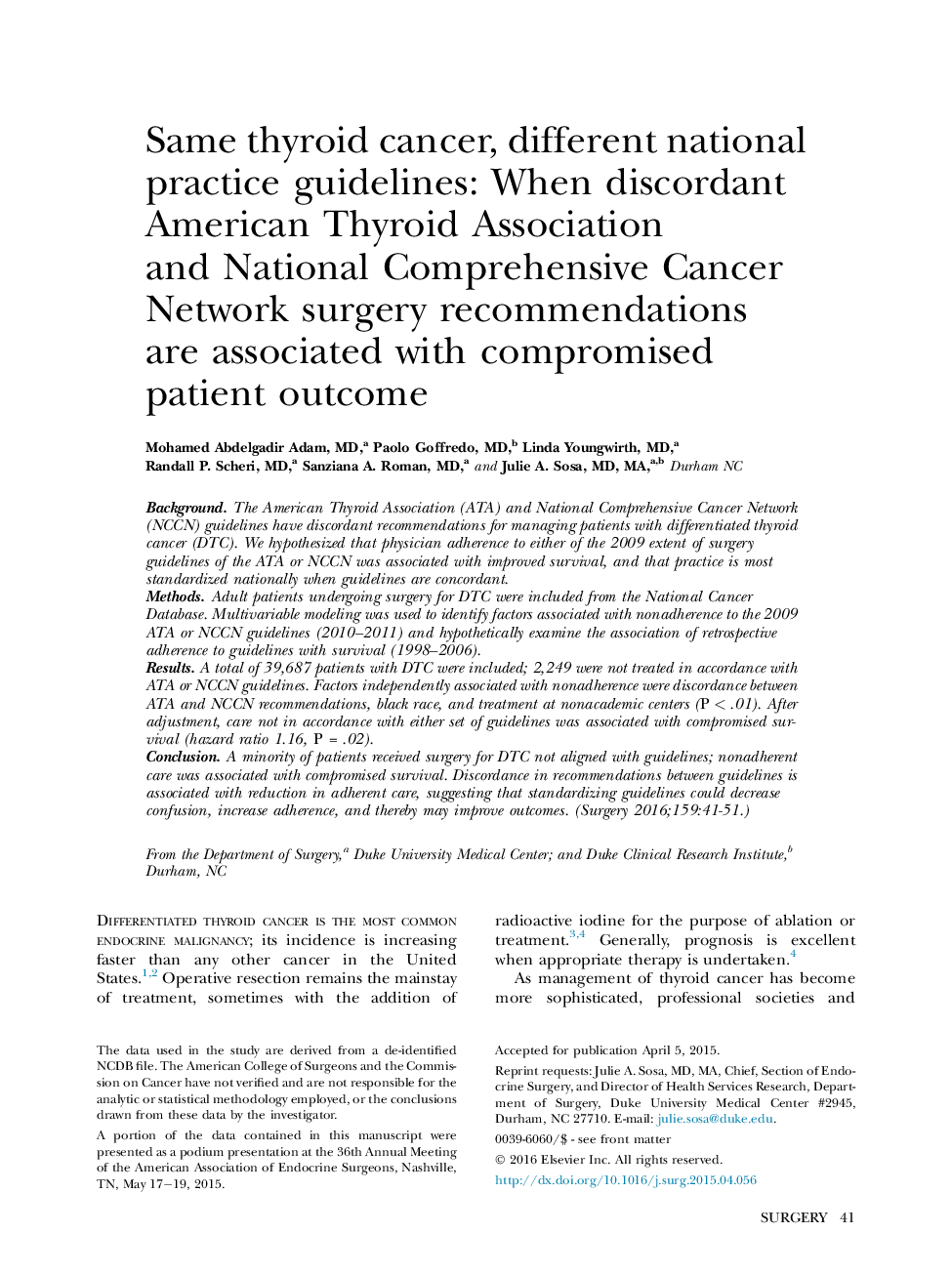| Article ID | Journal | Published Year | Pages | File Type |
|---|---|---|---|---|
| 4306609 | Surgery | 2016 | 11 Pages |
BackgroundThe American Thyroid Association (ATA) and National Comprehensive Cancer Network (NCCN) guidelines have discordant recommendations for managing patients with differentiated thyroid cancer (DTC). We hypothesized that physician adherence to either of the 2009 extent of surgery guidelines of the ATA or NCCN was associated with improved survival, and that practice is most standardized nationally when guidelines are concordant.MethodsAdult patients undergoing surgery for DTC were included from the National Cancer Database. Multivariable modeling was used to identify factors associated with nonadherence to the 2009 ATA or NCCN guidelines (2010–2011) and hypothetically examine the association of retrospective adherence to guidelines with survival (1998–2006).ResultsA total of 39,687 patients with DTC were included; 2,249 were not treated in accordance with ATA or NCCN guidelines. Factors independently associated with nonadherence were discordance between ATA and NCCN recommendations, black race, and treatment at nonacademic centers (P < .01). After adjustment, care not in accordance with either set of guidelines was associated with compromised survival (hazard ratio 1.16, P = .02).ConclusionA minority of patients received surgery for DTC not aligned with guidelines; nonadherent care was associated with compromised survival. Discordance in recommendations between guidelines is associated with reduction in adherent care, suggesting that standardizing guidelines could decrease confusion, increase adherence, and thereby may improve outcomes.
